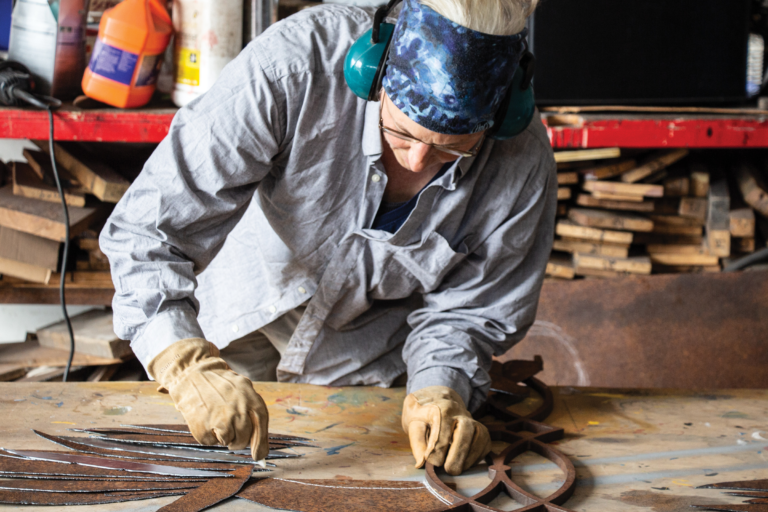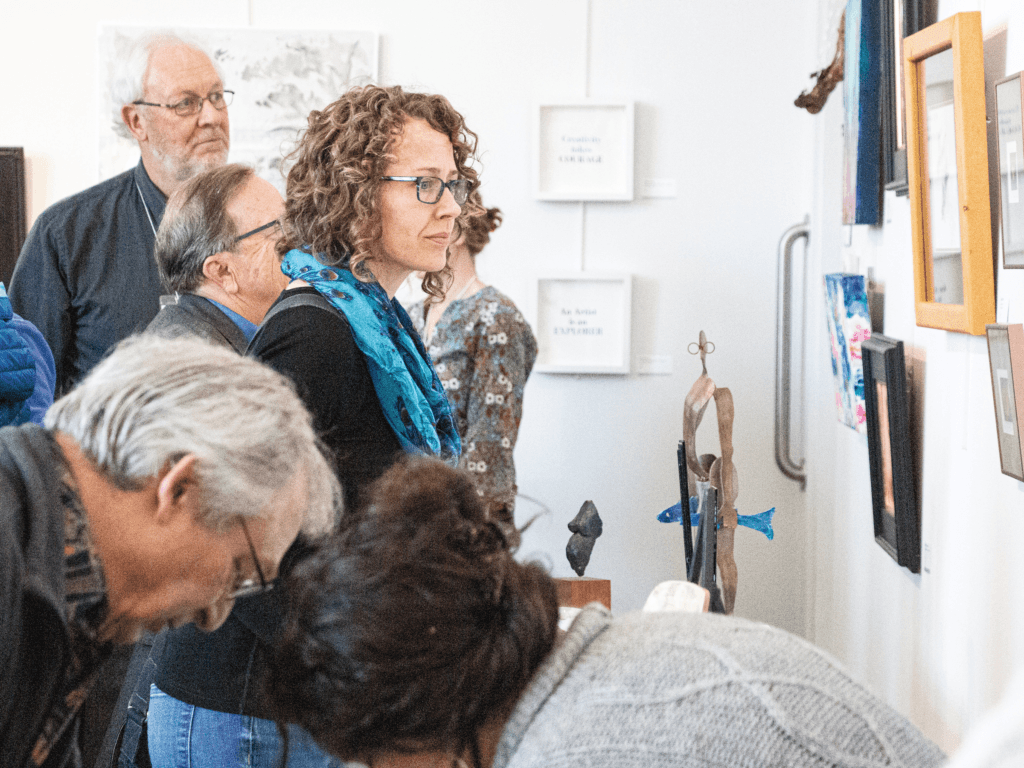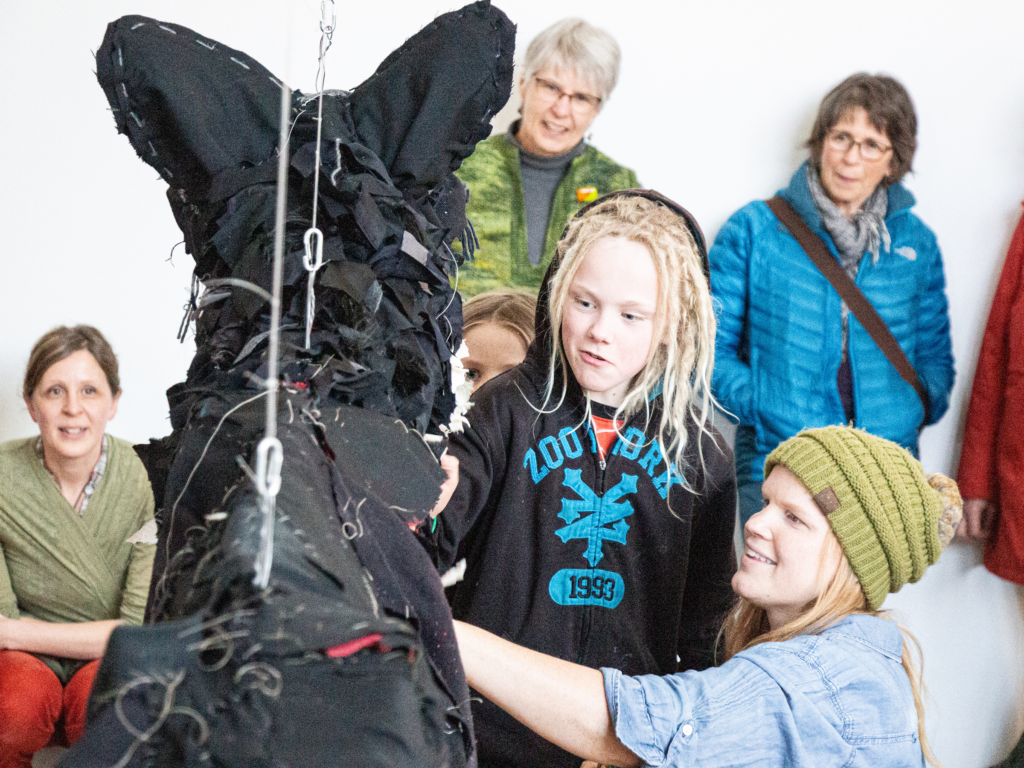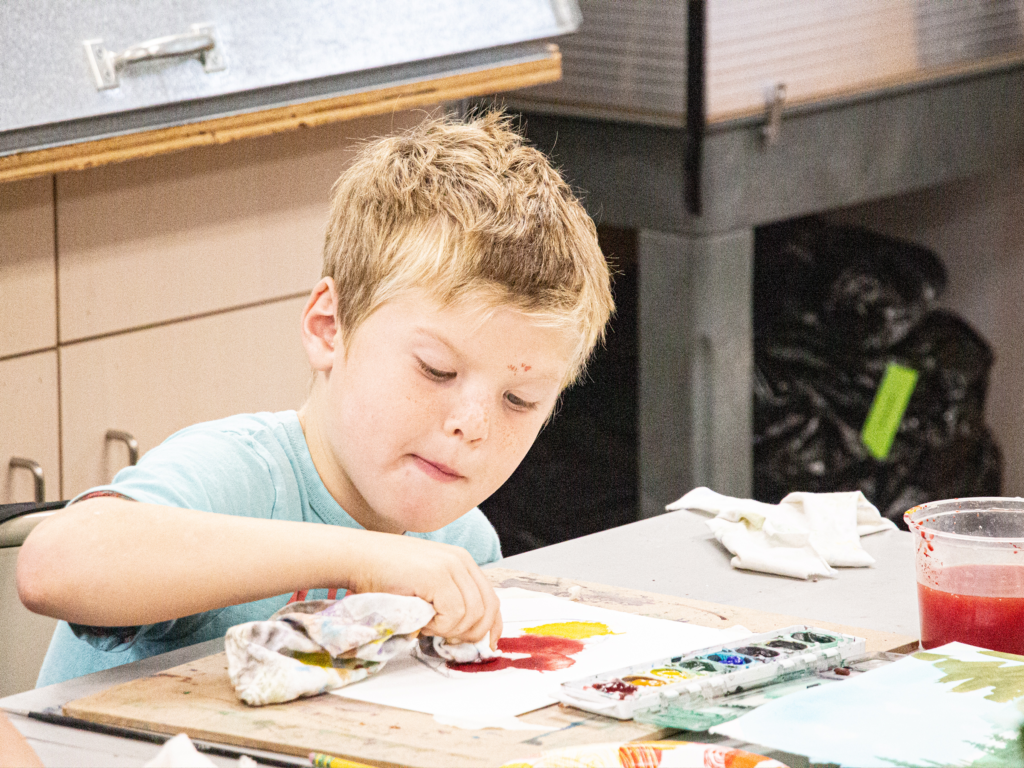Grand Marais Art Colony

In 2018, Grand Marais Art Festival drew over 15,000 visitors for its annual Arts Festival. That’s not bad for a community with a population of less than 1,500. Grand Marais sits on Minnesota’s North Shore of Lake Superior, about 4.5 hours northeast of the Twin Cities. For the past 75 years, the Grand Marais Art Colony has drawn thousands of artists, makers, and art appreciators. Its goal: to support the enduring human need for creative expression and inspiration.
“I think we tend to talk in general terms about ‘nonprofit woes.’ Having a space to really ask some bold questions was good.”
Lyla Brown, Executive Director, Grand Marais Art Colony

The annual Arts Festival is one of many programming pieces offered by the Art Colony. It also provides a range of assets related to the arts including classes for kids and adults, studio rentals for professional artists, residencies for artists coming from outside the region, and a public gallery space.
Using Art to Enter Hard Conversations
The last couple of years have seen some exciting changes at the Art Colony. At the end of 2018, Lyla Brown started as the new executive director. She followed a period of big growth under the former director Amy Demmer, and was selected to help the Art Colony implement some infrastructure and operational investments to sustain that growth. In April 2019, the Art Colony purchased a building closer to downtown, which will afford it more visibility once open in 2020. The expansion will also provide more gallery space, studio space, and public exhibition space.

Lyla was attracted to the Art Colony for the work it was doing to use art to open spaces for conversation in a highly politicized environment. “I think art can provide space and connection for people to talk and discuss ideas that may be controversial,” said Lyla, who brought years of experience in nonprofits and international development, but was newer to the art sector. “When I looked at the Art Colony, they seemed to be doing quite a bit of that work, both in Grand Marais and Cook County, but also across Greater Minnesota.”
Financial Leadership for Executive Directors
Lyla knew when she took the job that expansion was on the horizon for the Grand Marais Art Colony. As a first-time nonprofit executive director, she was fairly confident in her financial abilities but was interested in being better equipped to report to the board of directors. She decided to enroll in Propel Nonprofits’ Financial Leadership Cohort and was accepted into the first cohort exclusively for nonprofit executive directors.
“It was really nice to compare similar experiences,” said Lyla of her cohort experience, which concluded in November 2019. “I think we tend to talk in general terms about ‘nonprofit woes.’ Having a space to really ask some bold questions was good.” Lyla, unlike other cohort participants, had 10 extra hours for reflection on what to bring and what to take away from her cohort experience given the long drive, which she made one day a month for six months.

For Lyla, being an executive director from a rural community in Northern Minnesota offered a welcome chance to connect with other nonprofits and learn not just from Propel trainers, but other leaders. “It helps to have cross-fertilization between someone working in the metro and somebody who is in a town of 1,500 people,” she stated. “Yes, we’re a little more isolated geographically, and so being here helps us to up our game and to do better.”
While Lyla has already put some of the concepts learned through the cohort to good use at the Grand Marais Art Colony, such as the Mission Money Matrix, True Program Costs calculations, a financial terms glossary for the board, and improved board financials that have helped to deepen engagement, the experience was also affirming of how much she already knew. “I know a lot more than I thought I did!” she laughed. “I think for many women in leadership roles, there can be a sense of imposter syndrome when it comes to finances. This has been both a good affirmation of ‘you really do know what you’re talking about’ while at the same time giving me some good tools in terms of communicating.”

It was good timing for a sharpening of the tools in the toolbox for Lyla and the organization. As the Art Colony’s new building undergoes renovations, the nonprofit has also started an 8-month strategic planning process. “We’ll have conversations the organization hasn’t had in a long time,” said Lyla. “Are we about community or are we about art? What do we want to be? What do we want to do?” Lyla knows these will be tough conversations in the months ahead, and so feels grateful to have the time to reflect and invest in her own development and confidence going into them.
To learn more about the Grand Marais Art Colony and to sign up for classes, visit its website: https://grandmaraisartcolony.org/.
Photos courtesy of the Grand Marais Art Colony.
